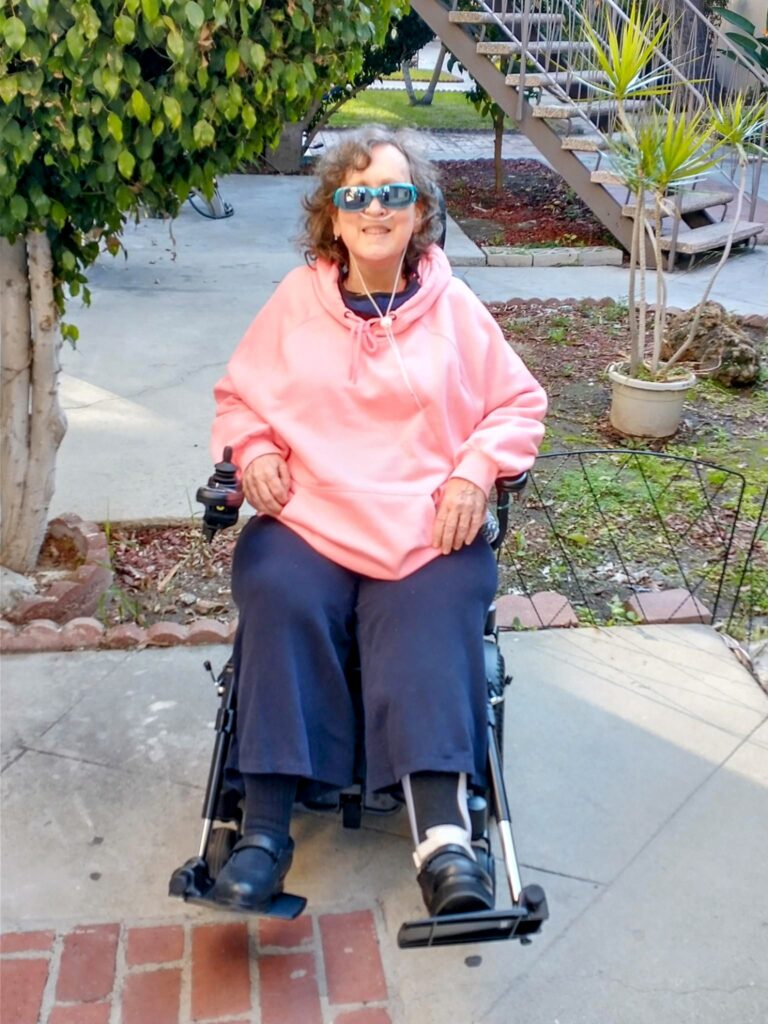
Basic Stuff
- Name: Cparks
- Country: United States
- State: California
- City: Los Angeles
- Gender: Female
- Age: 61
- Education: Masters Degree
- Primary Illness: ME/CFS
- Diagnosis:
- Chronic Fatigue Syndrome (ME/CFS)
- Fibromyalgia (FM)
- Migraine
- Year Illness Began: 1995
Functioning Interrupted
Work Interrupted
- Former Occupation: Science teacher
- Job Responsibilities at Former Occupation:
Teaching 190-200 students, high school science, 5 sections, plus supervising after school student activities two days a week. Working on my master's degree 8 units a semester.
- Years of Work Lost: 1
- Current Work Status: Retired
Other Interruptions
- My parents or other family members have provided financial support
- This illness has severely impacted my ability to financially prepare for retirement
- I reduced my work hours
- I left my job or retired early
Most Impactful Loss
Unable to teach, even part-time. Had to leave my position before the end of the school year, missing 2-3 days a week for a couple of months before going on disability-retirement. It broke my heart to leave my students like that.
My Story
I believe my ME/CFS started with a 20 month active EB infection when I was 19-21yo. I recovered to normal activity, though no longer a high energy person. During each of my three pregnancies, my functioning decreased to ~50 with a need for 16-18hr sleep during the third trimester. I recovered back to a normal baseline each time.
In 1995 I had my first hip replacement and had continuous symptoms after recovery, though about 90 functioning. I still was able to start and complete graduate course work for a permanent teaching credential and a master's degree in health education. In 2001 my other hip and leg underwent joint reconstruction, osteotomy and Achilles heel lengthening. I had to go to a SNF for ten days before being able to stand and take a few steps, so I could go home. I was at about 70% functioning when I recovered.
I'd taken a district level job earlier in 2001 so I could have surgery mid year without impacting student instruction. My base salary was unchanged but I didn't get long breaks so my salary increased. However, after the surgery I was unable to travel to schools to coordinate grant requirements the way I needed. I was unable to get funding for a mobility scooter or power wheelchair because a rollator walker met my needs fine at home, and vocational rehab decided I could just go back to the classroom.
I switched to part-time teaching in 2003. By 2005 I was struggling to teaching half-time and ended up going on disability-retirement on May 5th. My body then collapsed into 20-22hr sleep with being out of bed only for the bathroom and eating meals at the table, which were extremely difficult. I couldn't read or watch TV. I could listen to audio books in a dark room with my eyes closed. Several months later I improved to about 60 functioning.
I needed one more joint reconstruction surgery in 2012, a knee fusion using an external fixator with a compression device. My functioning decreased to my current housebound level with intermittent dips into being more bed bound, but not quite as bad as when I first went on disability-retirement.a




